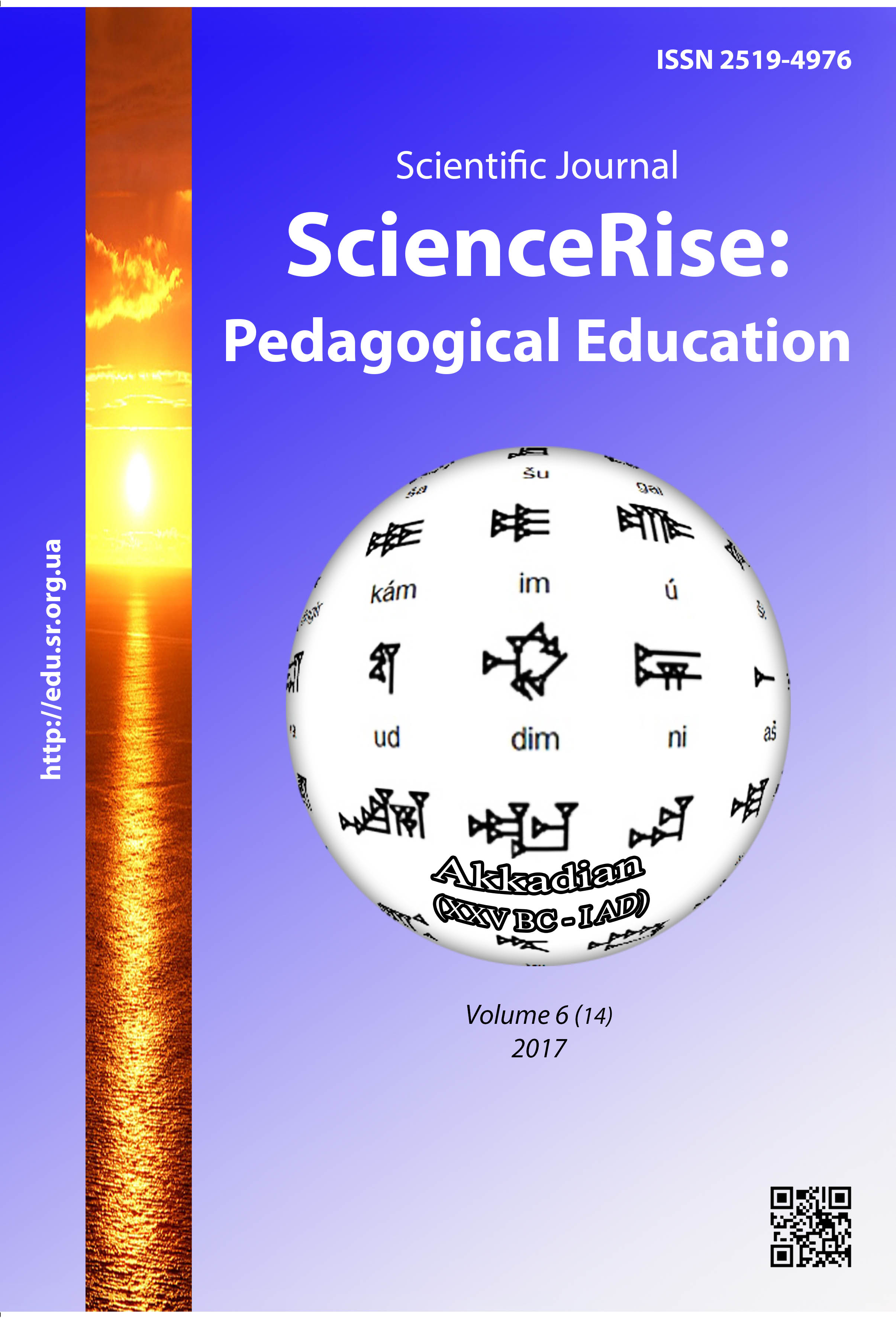The determinatin of concepts «person‒ individual‒personality» in soviet period
DOI:
https://doi.org/10.15587/2519-4984.2017.105543Keywords:
system of concepts, scientific thesaurus, person, individual, personality, conceptual and categorical apparatus, triad of conceptsAbstract
From the middle of the twentieth century, a new period of pedagogical concepts development begins. This period caused the intensification of researches in this area and, consequently, increased the number pedagogic encyclopaedias dictionary publications. During small period have been significant changes to distinguish the main pedagogical categories. Traditionally, scientists’ attention was focused on logical and meaningful clarify pedagogical concepts. While the issue of forming global thesaurus of various fields of science, formation and development of concepts as the concentrated expression of the historically achieved pedagogical knowledge and determination of concepts «person‒individual‒personality» in the Soviet period in pedagogy weren’t decided on a conceptual level. In our research, we qualify pedagogic scientific thesaurus as a scientific and cultural phenomenon that provides an understanding of scientists and practitioners in the global educational space and coherence of methodological principles of research problems. It is also a system of concepts, which is designed for people assimilation and mainstreaming the successful orientation in the sphere of scientific knowledge subject
References
- Suxomlynska, O. V. (2002). Konceptualni zasady formuvannya duxovnosti osobystosti na osnovi hrystyyanskyh moralnyh tcinnostey. Shlyah osvity. Kyiv: Nauka, 4, 13–18.
- Boldyrev, N. Y., Honcharov, N. K. et. al. (1968). Pedahohyka. Moscow: Prosveshhenye, 526.
- Vyshnyakova, S. M. (1990). Professyonalnoe obrazovanye: Klyuchevyye ponyatyya, termyny, aktualnaya leksyka. Moscow: NYC SPO, 538.
- Kayrov, Y. A. (Ed.) (1960). Pedahohycheskyj slovar. In 2 volumes: Vol. 1. Moscow: APN RSFSR, 774.
- Solties, G. (Ed.) (1954). Lexicon of terms and concepts. Oxford: Dunkin, 324.
- . Kurian, G. Th. (Ed.) (1988). World education encyclopedia. New York.: Oxf., 1320.
- Vyxrushh, A. V. (2009). Intehraciya ukrayinskoi osvity v evropeiskyi osvitnii prostir. Pedahohika ta psyxolohiya, 469, 22–32.
- Petrova, H. (2010). Latynsko-ukrayinskyj slovotvirnyj slovnyk (20000 sliv). Ternopil: Navchalna knyha – Bohdan, 880.
- Malynyn, A. M. (1952). Latynsko-russkyj slovar. Moscow: Ynostr. slovarej, 163.
- Savyn, N. V. (1978). Pedahohyka. Moscow: Prosveschenie, 13.
- Averyncev, S. S. (Ed.) (1989). Filosofskyi entcyklopedicheskii slovar. Moscow: Sovetskaya entciklopediya, 782.
- Frolov, Y. T. (1986). Filosofskii slovar. Moscow: Polyt. lyt., 162–540.
- Dvoreckii, Y. X. (1956). Latynsko-russkyi slovar. Moscow: Russkii yazyk, 478.
- Boldyrev, N. (1969). Bolshaya sovetskaya entcyklopediya. Moscow: Sovetskaya entcyklopediya, 978.
- Melnychuk, O. S. (1985). Slovnyk inshomovnyh sliv. Kyiv: Holovna redakciya radyanskoi entcyklopedii.
- Maccway, Dj. L .(1970). Thesaurus for Exceptional child education. London: Stars, 249.
Downloads
Published
How to Cite
Issue
Section
License
Copyright (c) 2017 Mariana Sokol

This work is licensed under a Creative Commons Attribution 4.0 International License.
Our journal abides by the Creative Commons CC BY copyright rights and permissions for open access journals.
Authors, who are published in this journal, agree to the following conditions:
1. The authors reserve the right to authorship of the work and pass the first publication right of this work to the journal under the terms of a Creative Commons CC BY, which allows others to freely distribute the published research with the obligatory reference to the authors of the original work and the first publication of the work in this journal.
2. The authors have the right to conclude separate supplement agreements that relate to non-exclusive work distribution in the form in which it has been published by the journal (for example, to upload the work to the online storage of the journal or publish it as part of a monograph), provided that the reference to the first publication of the work in this journal is included.







